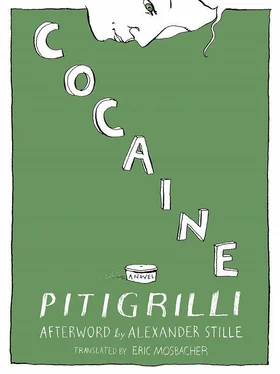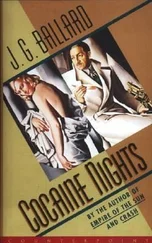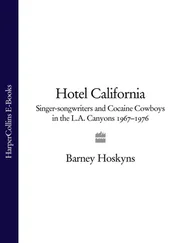Having been plunged hitherto in the morbid, the artificial and the toxic, now, in her new pure love she felt the need to hark back to the remote mythological simplicity of ancient Greek dress.
Her dress had been made for her by Raymond Duncan, that half wheeler-dealer, half visionary, who has not yet lost his American accent after twenty years in Paris. He is the brother of Isadora Duncan, the great classical dancer, who every so often visits her children’s grave dressed in veils and necklaces to weep maternal tears and address her prayers and raise her legs to God.
Raymond Duncan has founded a monastic institution with a strange rule and strange rites in the Latin Quarter, near the church of Saint-Germain-des-Prés. He and his followers grow their hair long and wear chlamyses and sandals, and in that guise, sometimes in platoons and sometimes alone, they face the ironic comments of the boulevards, on which, with a trace of irreverence, they are known as les hommes nature.
They claim that this is the uniform to be adopted by those who wish to complete the long journey in search of the ideal. No secret rites take place in this monastery, which has big windows looking on to the Rue Jacob through which healthy and flourishing girls can been seen laying out carpets and disentangling skeins of wool on their arms, which are bare up to their armpits. Painted materials, unbleached cloth, wools as brown as shepherds’ clothing hang from looms that recall the impatient hurry of a smoothing plane; and clusters of skeins of wool resembling huge fruits grown in honor of Vertumnus, Proserpine and Pomona hang on posts that support a primitive Greek style of architecture. Thick woolen cloth, woven into patterns that recall ancient mythological hair-styles, hang from the loom at which a girl working the shuttle flexes the muscles of her bare arms and legs. She looks like an Andromache en déshabillé.
At that monastery without crosses, images or altars Madame Kalantan Ter-Gregorianz had found something that the great dressmakers of the Rue de la Paix had not been able to offer her, that is, a loose and simple dress in harmony with the pure and primitive love that after many years of questionable excitements and morbid complications, chemically induced hallucinations and fictitious exaltations, she had at last found in the arms of the young Italian with his pale face and moist blue eyes.
Until a few weeks previously she had had strange lovers with strange ideas of love. She had given herself under the influence of morphine and music; she had lain between love and death, underneath violent men in a coffin; she had experimented with the craziest complications and the most tremendous cerebral exaltations. For 5,682 years (according to the Jewish calendar) women have been taken in the old, traditional way, and Kalantan Ter-Gregorianz tried desperately to find a new one. But the further she ran after artificial and extravagant pleasure, the further did voluptuousness vanish into the distance.
And then Tito, whom she met on a night of orgy, at one of those white masses that had made her famous in Paris, had offered her his youthful simplicity as a magnificent fruit is offered with two bare hands.
Tito, the young cocaine addict, to whom the drug gave an exceptional cheerfulness.
“There’s still hope for you,” Kalantan said to him. “I know that dreadful, deadly powder. You haven’t yet got to the stage of tremendous depression, of insuperable melancholy. Now you smile when you have the powder in your blood. You’re at the early stage in which you go back to childhood.”
She spoke to him as to a child, though they were both of the same age. Cocaine achieves the cruel miracle of distorting time.
Csaky, the butler, had laid a small round table, so small that the mouths of the two diners facing each other could easily meet.
“Csaky,” was all the lady said, and Csaky brought to the table a silver dish with big slices of a pink fish alternating with slices of aquamarine-colored pineapple.
Champagne bubbled in a jug as simple as an ordinary water jug. Bringing champagne to table in a labeled bottle is like giving a present with the price still attached.
A Siamese cat came and rubbed itself voluptuously against Tito’s legs.
Kalantan stretched her bare arm across the table and lightly stroked her lover’s hair and then one of his pale cheeks. The caress was as gentle as that of a ghost.
It gave Tito not so much sweet pleasure as a sweet shudder.
Kalantan had not wanted to see any of her old friends since falling in love with Tito. Mourning her husband gave her an excellent excuse for this voluntary isolation. There were no more orgies with drugs and the music of Stravinsky and butterflies sent from the Amazon. What she now loved was love that was as pure as a ringless hand, as simple as loosened hair.
She offered herself to Tito without scent or make-up, just as she emerged from the bath, with nothing but a perfume of wild flesh that was no longer western but was not yet Asian. Her skin preserved a slightly salty odor, as if impregnated with the winds that blow past the salt mines of her remote country.
Kalantan.
A slow, deep, melodious name, like the wind that blows through the gorges of the Caucasus.
Kalantan.
He felt the warmth of her bare knees. He stretched out his hand under the table and caressed something round, smooth, soft, warm and as fresh as a child’s face.
The butler came in several times. After the coffee and liqueurs he did not come in again.
Against one wall of the little room, which was painted like the cabin of a transatlantic liner, there was a low, wide, and deep parellelepiped consisting of three or four mattresses on top of one another covered by a big rug. This was the takhta , a kind of altar to Asian female idleness on which oriental women spend their unprofitable time with their legs crossed, munching sweets and recalling antediluvian legends.
“And they’re quite right,” said Tito, joining Kalantan, who was squatting on the takhta between two cushions. “What is the point of getting excited and rushing about? We’re like children who laboriously drag a toy cart up a slope for the sake of the insipid pleasure of coasting down it. You say that I’m at the cheerful stage of self-poisoning, Kalantan. You think I laugh, but I’ve passed that stage already. I’m always sad. I no longer believe in the blue of dreams. There’s an illness called acianoblepsia that results in one color, dark blue, becoming invisible, and I’m ill with a kind of mental acianoblepsia. I no longer see the blue of life. The great harm done by cocaine is not confined to weakening the lungs and damaging the heart. The chief harm is psychological. It splits the personality; it does a tremendous job of disintegrating the mind, almost as if by electrolysis. I believe that in every intelligent person there are two persons of opposite ideas and tastes; and I believe that in the artist these two persons are so distinct that one can criticize the other, suggest remedies to him and cultivate his vices if they are attractive and his virtues if they are not boring. The effect of cocaine is to make the splitting of the personality take the form of an explosion of revulsion. The two persons inside me criticize each other, corrode each other, in a way that results in my hating myself. And then I begin to see the uselessness of everything. I feel my heart beating. What for? To send the blood to my lungs. What for? To fill it with oxygen. What for? To enable the oxygen to go and burn up the tissues and then return to the lungs to get rid of the products of combustion. And then? It goes on like that, even when I’m asleep, even when I’m waking or when I’m in your arms and even when I’m not thinking at all. Tell me, Kalantan, tell me why my heart goes on beating and for what purpose. If you knew how many times I’ve been tempted to send it a little leaden messenger telling it to stop at once, because one day it will stop naturally, of its own accord, and why should it take the trouble of going on until then?”
Читать дальше



